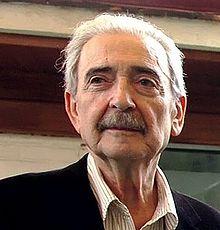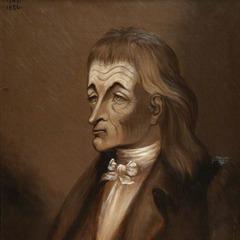John Dryden Quotes - Page 8
Juvenal, John Dryden, Nahum Tate, Persius, Richard Duke (1713). “The Satires of Decimus Junius Juvenalis: and of Aulus Persius Flaccus”, p.150
John Dryden (1701). “Poems on Various Occasions: And Translations from Several Authors”, p.10
A Song for St. Cecilia's Day st. 2 (1687)
John Dryden, George Saintsbury, Sir Walter Scott (1892). “The Works of John Dryden: Poetical works”
But Shakespeare's magic could not copied be; Within that circle none durst walk but he.
John Dryden (1870). “The Poetical Works of John Dryden”, p.400
The thought of being nothing after death is a burden insupportable to a virtuous man.
John Dryden (1859). “The poetical works of John Dryden”, p.132
John Dryden (1882). “Dramatic works”
For what can power give more than food and drink, To live at ease, and not be bound to think?
John Dryden (1870). “The Poetical Works of John Dryden”, p.133
Luxurious kings are to their people lost, They live like drones, upon the public cost.
John Dryden, Sir Walter Scott (1808). “The Works of John Dryden,: The life of John Dryden”, p.228
Present joys are more to flesh and blood Than a dull prospect of a distant good.
'The Hind and the Panther' (1687) pt. 3, l. 364
John Dryden (2013). “Delphi Complete Works of John Dryden (Illustrated)”, p.504, Delphi Classics
John Dryden, Paul Hammond, David Hopkins (2007). “Dryden: Selected Poems”, p.261, Pearson Education
Death ends our woes, and the kind grave shuts up the mournful scene.
John Dryden (1808). “The works of John Dryden: now first collected in eighteen volumes. Illustrated with notes, historical, critical, and explanatory, and a life of the author”, p.475
He trudged along unknowing what he sought, And whistled as he went, for want of thought.
'Cymon and Iphigenia' (1700) l. 84
John Dryden, Joseph Warton, John Warton (1811). “The Poetical Works of John Dryden: Containing Original Poems, Tales and Translations”, p.353
John Bell, Joseph Addison, Michael Arne, John Banks, John Brown (1792). “British Theatre: Isabella, or, The fatal marriage”
John Dryden, Joseph Warton, John Warton (1856). “The Poetical Works of John Dryden, Containing the Original Poems, Tales, and Translations”, p.404
It is sufficient to say, according to the proverb, that here is God's plenty.
Fables Ancient and Modern preface (1700)
Charles-Alphonse Dufresnoy, Sir Joshua Reynolds, John Dryden, Alexander Pope (1783). “The art of painting of Charles Alphonse Du Fresnoy”, p.176
"To the Memory of Mr. Oldham" l. 15 (1684)
Mr. Joseph Trapp, Mr. John Dryden, Edmund Smith, Mr. John Crown, Colley Cibber (1721). “A Select Collection of the Best Modern English Plays: Vol. III.”, p.29
"Amphitryon". Play by John Dryden, 1690.







